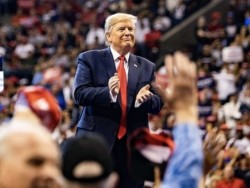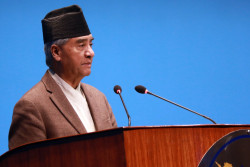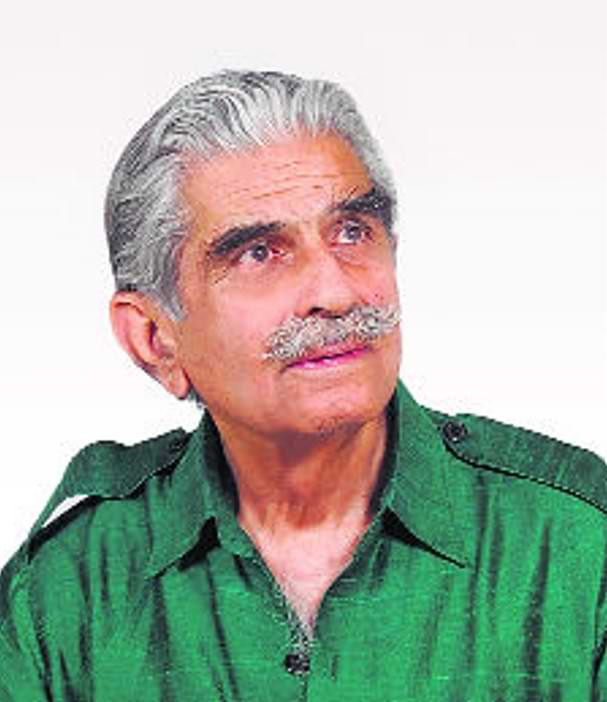Opinion
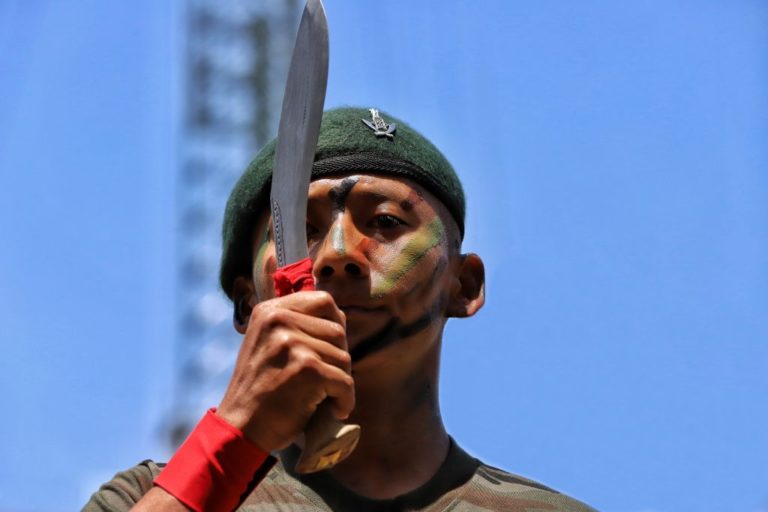
The short-term Agnipath scheme offered by India to Nepal for Gorkha recruitment will become a litmus test for India-Nepal relations. The choice that Nepal will have to make is not an easy one as it must act in its national interest. India can make it easier for the new government in Nepal to make the right choice at a time of geo-economic stress to improve bilateral relations.
Recent comments by India's Army Chief Gen Manoj Pande on redistribution of vacancies to others for Gorkha recruitment under Agnipath scheme should Nepal not take a call on time were best not made. Nepal is engulfed in political turmoil as revisionist forces are making a push-back to the gigantic political transformation following the dismantling of monarchy. Chief Justice,
Cholendra Shumsher Rana is under virtual house arrest as President Bidya Devi Bhandari has twice rejected the new citizenship bill and the Supreme Court issuing a show cause notice to her.
This is disturbing the pre-election (20 November) scene as Agnipath is put on the back burner.
The 200-years old British Gorkha connect with Nepal – Indianised after independence – is the unspoken lynchpin of bilateral relations resulting in a big ex-servicemen community which properly nurtured acts as a pro-India constituency in times of political choices, especially when China’s competitive zeal is growing.
Gen Pande’s visit to Nepal last month to be made Honorary General of the Nepal Army (Nepali Army Chief is similarly recognised by India) is a post-Independence unique tradition unknown between other militaries. Gen Pande made the avoidable remarks after a successful visit. Silence on sensitive political issues was advisable as he now wears two hats - now one made in Nepal.
Also Read: Gorkha veterans call for swift Gorkha recruitment
Nepali concerns
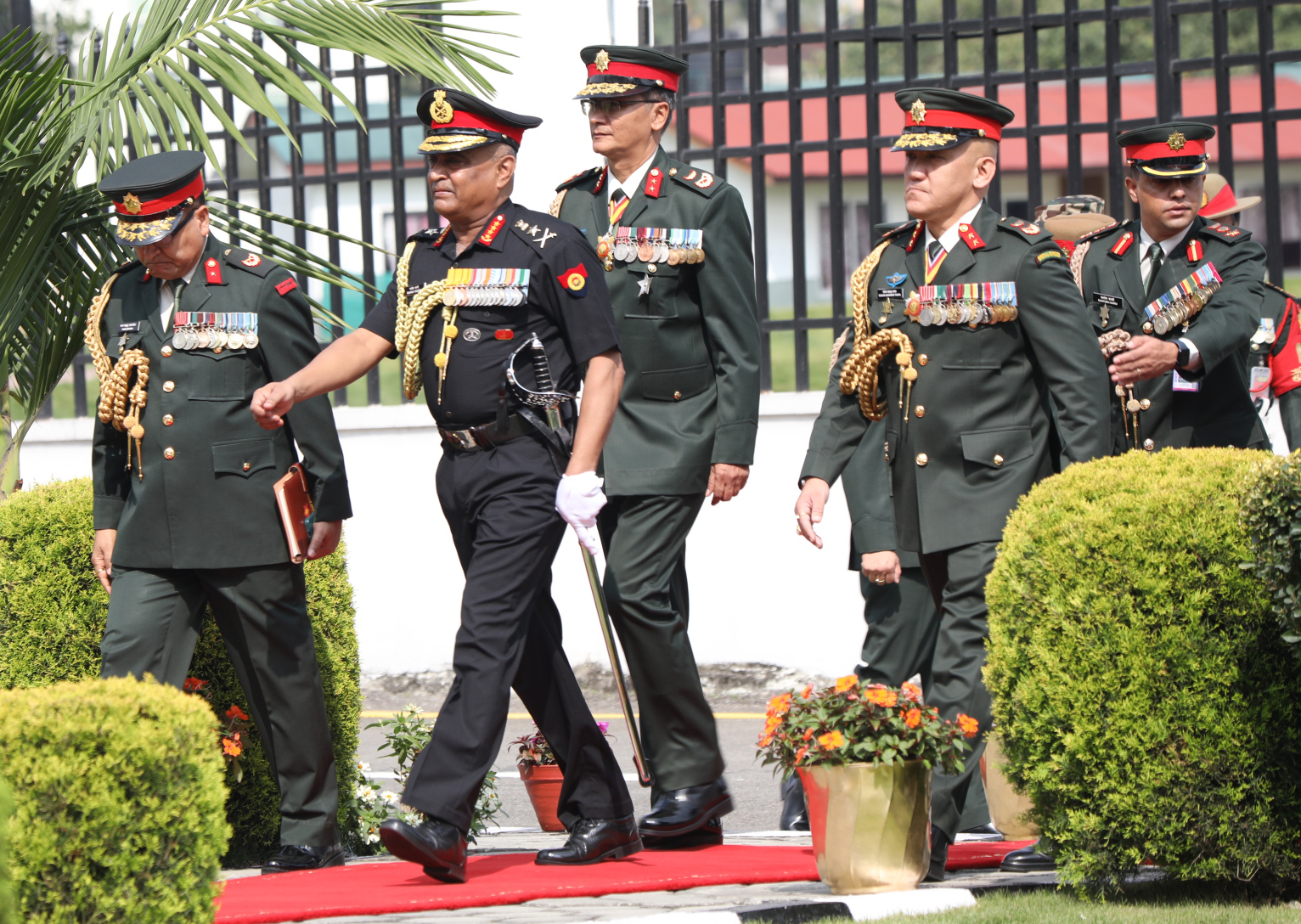
A day after Gen Pandey’s ultimatum, briefing the media, Nepal’s Foreign Ministry spokesperson, Sewa Lamsal, said: “A decision on Agnipath was not possible anytime soon, certainly not before the elections.” To be fair, Nepal’s parliamentary Foreign Affairs Committee did twice try to meet but quorum was not achieved, reflecting their preoccupation with upcoming elections. Janata Samajwadi Party’s politburo member, former Indian Army’s Subedar Major Khem Jung Gurung told me that 98 percent of Nepalese parliamentarians do not favour Agnipath’s four-year recruitment scheme.
Some other concerns include the release into society of youth trained in warfare when dissident and secessionist groups in Nepal are lying doggo. Nepal’s labour law permits engagement of youth only after 17 and a half years whereas Agniveers will be recruited at 17 years. A soldier will be called Agniveer not Gorkha. There is doubt about the number of Nepali Gorkhas who will be re-enlisted among 25 percent demobilized. Questions have also been raised about the declining quota for Nepali Gorkhas vis a vis Indian Gorkhas from 70:30 to 60:40.
At the time of signing a Tripartite Agreement on recruitment in 1947, 100 percent of Gorkhas were from Nepal. Lately, due to Indian Gorkhas not meeting recruitment standards, Kumaonis and Garhwalis are among the 40 percent reservation for Indian domiciled Gorkhas. The mother of all fears is disaffected Gorkhas joining PLA and Chinese designs of raising PLA regiments of Tibetans and Gorkhas.
Options before India
RTI (Right To Information) activist Vihar Durve seeking details of Agnipath scheme was informed that the MoD file was classified ‘secret’. The question being asked is how Agnipath got approved by the three service chiefs as off record, serving Lieutenant Generals have told me that the scheme was thrust ‘from above’.
Assuming Nepal will decide only by December on Agnipath, options on recruitment are: A) filling up the 60 percent Nepali Gorkha quota from Kumaonis and Garhwalis as was previously done; B) Wait out till December for Nepal to decide and implement a one-time delayed recruitment training cycle; C) Suspend Gorkha recruitment altogether aiming at terminating recruitment of Gorkhas as part of implementing Prime Minister Modi’s wish to phase out colonial legacy. The recruitment of Gorkhas was begun in 1815 by the British though the first Gorkha Lahure (soldier) was recruited at Lahore in 1809 by Maharaja Ranjit Singh’s Sikh Army. It is understood the Army will wait till December when Nepal’s new government decides on Agnipath before taking the next step.
Cue from the past
For long, a silent campaign has been waged for ending recruitment from Nepal when youth in India are unemployed. In 1974 a proposal to phase out the Gorkhas was sent from Indian Embassy in Kathmandu which was rejected by Prime Minister Indira Gandhi on the recommendation of Army Chief, Gen Gopal Bewoor who was Colonel of the 11 Gorkha Rifles, a title that (late) Chief of Defence Staff (CDS) Gen Bipin Rawat later inherited. Now Gen Anil Chauhan, also from 11 GR, is the new CDS and he will have to play his part in strengthening the Gorkha-connect.
In 2020, then Nepal Foreign Minister, Pradeep Gyawali stunned many by calling Gorkhas ‘legacy of the past” and the Tripartite Agreement as ‘redundant’. Gyawali is a Communist leader and his party along with Maoists has made recruitment into the Indian Army (not so much the British Army) a political football. The Indian ex-servicemen, their progeny and youth in Nepal will be shocked by India’s decision to suspend and stop recruitment.
Avoid obvious pitfalls
The political, diplomatic and strategic ramifications of the decision will be negatively profound. On his first visit as PM to Nepal in 2014, Modi said in Nepal’s Parliament: “There was no war India had fought in which Nepali blood has not been sacrificed.” Praising the bravery and courage of Gorkhas he added: “I salute the brave-hearts who had laid their lives for India.”
If Modi is not to eat his words, he can keep the Gorkha regiments sourced from Nepal outside the ambit of Agnipath like the Army Medical Corps, to help Nepal to make the right choice after its elections, or promise to help demobilised Nepali Gorkhas acquire skills and jobs as provisioned in India in deference to ‘equal treatment’ under the Tripartite Agreement. Save the Gorkhas should become the national campaign with all eyes on CDS Gen Chauhan acting as its Sherpa.
(Maj Gen Ashok K Mehta is a Gorkha veteran and has trekked in Nepal annually since 1959.)
